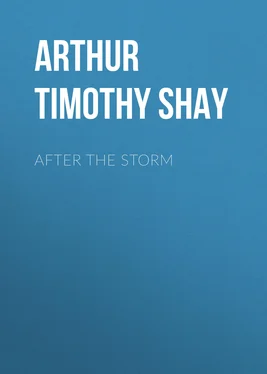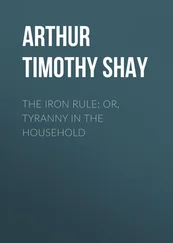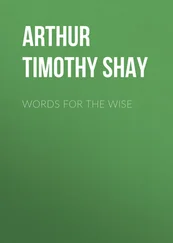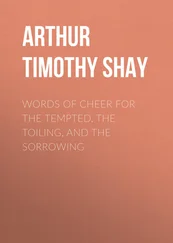Timothy Arthur - After the Storm
Здесь есть возможность читать онлайн «Timothy Arthur - After the Storm» — ознакомительный отрывок электронной книги совершенно бесплатно, а после прочтения отрывка купить полную версию. В некоторых случаях можно слушать аудио, скачать через торрент в формате fb2 и присутствует краткое содержание. Жанр: foreign_sf, literature_19, foreign_antique, foreign_prose, на английском языке. Описание произведения, (предисловие) а так же отзывы посетителей доступны на портале библиотеки ЛибКат.
- Название:After the Storm
- Автор:
- Жанр:
- Год:неизвестен
- ISBN:нет данных
- Рейтинг книги:5 / 5. Голосов: 1
-
Избранное:Добавить в избранное
- Отзывы:
-
Ваша оценка:
- 100
- 1
- 2
- 3
- 4
- 5
After the Storm: краткое содержание, описание и аннотация
Предлагаем к чтению аннотацию, описание, краткое содержание или предисловие (зависит от того, что написал сам автор книги «After the Storm»). Если вы не нашли необходимую информацию о книге — напишите в комментариях, мы постараемся отыскать её.
After the Storm — читать онлайн ознакомительный отрывок
Ниже представлен текст книги, разбитый по страницам. Система сохранения места последней прочитанной страницы, позволяет с удобством читать онлайн бесплатно книгу «After the Storm», без необходимости каждый раз заново искать на чём Вы остановились. Поставьте закладку, и сможете в любой момент перейти на страницу, на которой закончили чтение.
Интервал:
Закладка:
Irene did not answer, but her father saw the color coming back to her face.
"I think, from his manner, that he was hurt by your singular treatment. What possessed you to do so?"
"Because I was not pleased with him," said Irene. Her voice was now steady.
"Why not?"
"I wished him to go to the arbor."
"He was your guest, and, in simple courtesy, if there was no other motive, you should have let his wishes govern your movements," Mr. Delancy replied.
"He is always opposing me!" said Irene, giving way to a flood of tears and weeping for a time bitterly.
"It is not at all unlikely, my daughter," replied Mr. Delancy, after the tears began to flow less freely, "that Hartley is now saying the same thing of you, and treasuring up bitter things in his heart. I have no idea that any business calls him to New York to-night."
"Nor I. He takes this means to punish me," said Irene.
"Don't take that for granted. Your conduct has blinded him, and he is acting now from blind impulse. Before he is half-way to New York he will regret this hasty step as sincerely as I trust you are already regretting its occasion."
Irene did not reply.
"I did not think," he resumed, "that my late earnest remonstrance would have so soon received an illustration like this. But it may be as well. Trifles light as air have many times proved the beginning of life-longs separations between friends and lovers who possessed all the substantial qualities for a life-long and happy companionship. Oh, my daughter, beware! beware of these little beginnings of discord. How easy would it have been for you to have yielded to Hartley's wishes!—how hard will it to endure the pain that must now be suffered! And remember that you do not suffer alone; your conduct has made him an equal sufferer. He came up all the way from the city full of sweet anticipations. It was for your sake that he came; and love pictured you as embodying all attractions. But how has he found you? Ah, my daughter, your caprice has wounded the heart that turned to you for love. He came in joy, but goes back in sorrow."
Irene went up to her chamber, feeling sadder than she had ever felt in her life; yet, mingling, with her sadness and self-reproaches, were complaining thoughts of her lover. For a little half-playful pettishness was she to be visited with a punishment like this? If he had really loved her—so she queried—would he have flung himself away after this hasty fashion? Pride came to her aid in the conflict of feeling, and gave her self-control and endurance. At tea-time she met her father, and surprised him with her calm, almost cheerful, aspect. But his glance was too keen not to penetrate the disguise. After tea, she sat reading—or at least affecting to read—in the portico, until the evening shadows came down, and then she retired to her chamber.
Not many hours of sleep brought forgetfulness of suffering through the night that followed. Sometimes the unhappy girl heaped mountains of reproaches upon her own head; and sometimes pride and indignation, gaining rule in her heart, would whisper self-justification, and throw the weight of responsibility upon her lover.
Her pale face and troubled eyes revealed too plainly, on the next morning, the conflict through which she had passed.
"Write him a letter of apology or explanation," said Mr. Delancy.
But Irene was not in a state of mind for this. Pride came whispering too many humiliating objections in her ear. Morning passed, and in the early hours of the afternoon, when the New York boat usually came up the river, she was out on the portico watching for its appearance. Hope whispered that, repenting of his hasty return on the day before, her lover was now hurrying back to meet her. At last the white hull of the boat came gliding into view, and in less than half an hour it was at the landing. Then it moved on its course again. Almost to a second of time had Irene learned to calculate the minutes it required for Hartley to make the distance between the landing and the nearest point in the road where his form could meet her view. She held her breath in eager expectation as that moment of time approached. It came—it passed; the white spot in the road, where his dark form first revealed itself, was touched by no obscuring shadow. For more than ten minutes Irene sat motionless, gazing still toward that point; then, sighing deeply, she arose and went up to her room, from which she did not come down until summoned to join her father at tea.
The next day passed as this had done, and so did the next. Hartley neither came nor sent a message of any kind. The maiden's heart began to fail. Grief and fear took the place of accusation and self-reproach. What if he had left her for ever! The thought made her heart shiver as if an icy wind had passed over it. Two or three times she took up her pen to write him a few words and entreat him to come back to her again. But she could form no sentences against which pride did not come with strong objection; and so she suffered on, and made no sign.
A whole week at last intervened. Then the enduring heart began to grow stronger to bear, and, in self-protection, to put on sterner moods. Hers was not a spirit to yield weakly in any struggle. She was formed for endurance, pride and self-reliance giving her strength above common natures. But this did not really lessen her suffering, for she was not only capable of deep affection, but really loved Hartley almost as her own life; and the thought of losing him, whenever it grew distinct, filled her with terrible anguish.
With pain her father saw the color leave her cheeks, her eyes grow fixed and dreamy, and her lips shrink from their full outline.
"Write to Hartley," he said to her one day, after a week had passed.
"Never!" was her quick, firm, almost sharply uttered response; "I would die first!"
"But, my daughter—"
"Father," she interrupted him, two bright spots suddenly burning on her cheeks, "don't, I pray you, urge me on this point. I have courage enough to break, but I will not bend. I gave him no offence. What right has he to assume that I was not engaged in domestic duties while he sat talking with you? He said that he had an engagement in New York. Very well; there was a sufficient reason for his sudden departure; and I accept the reason. But why does he remain away? If simply because I preferred a seat in the arbor to one in the portico, why, the whole thing is so unmanly, that I can have no patience with it. Write to him, and humor a whim like this! No, no—Irene Delancy is not made of the right stuff. He went from me, and he must return again. I cannot go to him. Maiden modesty and pride forbid. And so I shall remain silent and passive, if my heart breaks."
It was in the afternoon, and they were sitting in the portico, where, at this hour, Irene might have been found every day for the past week. The boat from New York came in sight as she closed the last sentence. She saw it—for her eyes were on the look-out—the moment it turned the distant point of land that hid the river beyond. Mr. Delancy also observed the boat. Its appearance was an incident of sufficient importance, taking things as they were, to check the conversation, which was far from being satisfactory on either side.
The figure of Irene was half buried in a deep cushioned chair, which had been wheeled out upon the portico, and now her small, slender form seemed to shrink farther back among the cushions, and she sat as motionless as one asleep. Steadily onward came the boat, throwing backward her dusky trail and lashing with her great revolving wheels the quiet waters into foamy turbulence—onward, until the dark crowd of human forms could be seen upon her decks; then, turning sharply, she was lost to view behind a bank of forest trees. Ten minutes more, and the shriek of escaping steam was heard as she stopped her ponderous machinery at the landing.
Читать дальшеИнтервал:
Закладка:
Похожие книги на «After the Storm»
Представляем Вашему вниманию похожие книги на «After the Storm» списком для выбора. Мы отобрали схожую по названию и смыслу литературу в надежде предоставить читателям больше вариантов отыскать новые, интересные, ещё непрочитанные произведения.
Обсуждение, отзывы о книге «After the Storm» и просто собственные мнения читателей. Оставьте ваши комментарии, напишите, что Вы думаете о произведении, его смысле или главных героях. Укажите что конкретно понравилось, а что нет, и почему Вы так считаете.












